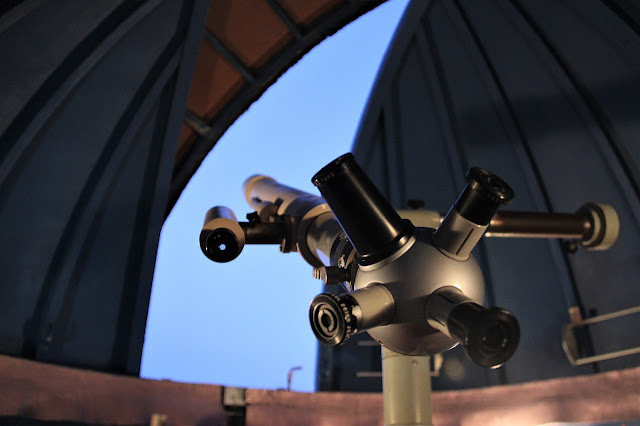Telescopes have revolutionized our understanding of the universe by allowing us to observe celestial objects and phenomena in greater detail. Here are some interesting facts about telescopes:
1. Invention of the Telescope:
The telescope was invented in the early 17th century. Credit for its invention is often given to Dutch astronomer and scientist Hans Lippershey, although others like Galileo Galilei made significant contributions to its development.
2. Galileo's Observations:
Galileo was one of the first astronomers to use a telescope for astronomical observations. He made groundbreaking discoveries, including the moons of Jupiter and the phases of Venus, which provided evidence for the heliocentric model of the solar system.
3. Types of Telescopes:
There are several types of telescopes, including refracting telescopes (use lense) and reflecting telescopes (use mirrors). Each type has its advantages and limitations.
4. The Hubble Space Telescope:
Launched in 1990, the Hubble Space Telescope has provided some of the most stunning and detailed images of distant galaxies, nebulae and other celestial objects. It orbits Earth and captures images free from atmospheric distortion.
5. Radio Telescopes:
Telescopes are not limited to visible light. Radio telescopes detect radio waves from space, helping astronomers study objects and phenomena such as pulsars, quasars, and the cosmic microwave background radiation.
6. Space Observatories:
Besides the Hubble, various other space observatories, like the Chandra X-ray Observatory and the James Webb Space Telescope (scheduled to launch in the near future), have expanded our ability to study the universe across different wavelengths.
7. Large Observatories:
Ground-based observatories with enormous telescopes, such as the Keck Observatory in Hawaii and the Very Large Telescope in Chile, enable astronomers to study distant galaxies and exoplanets.
8. Adaptive Optics:
To compensate for the blurring effect of Earth's atmosphere, some modern telescopes use adaptive optics systems that rapidly adjust the shape of mirrors or other optical elements to counteract distortion.
9. Astronomy Beyond Light:
Telescopes can observe more than just visible light. Telescopes equipped with instruments like spectrometers can analyze different wavelengths, including infrared, ultraviolet, X-rays and gamma rays.
10. Exoplanet Discoveries:
Telescopes have played a crucial role in the discovery of thousands of exoplanets (planets orbiting other stars) by observing tiny changes in a star's brightness as a planet passes in front of it.
11.Telescope Arrays:
Some astronomical projects use arrays of telescopes working together to create a single, powerful instrument. An example is the Event Horizon Telescope, which captured the first-ever image of a black hole.
12. Amateur Astronomy:
Telescopes are not just for professionals. Many amateur astronomers have access to sophisticated telescopes and contribute to scientific discoveries and observations of celestial events like comets and eclipses.
13.Telescopes in Space Exploration:
Telescopes have been used on space missions to study planets, moons, and asteroids up close. For example the New Horizons spacecraft carried a telescope to study Pluto.
14. Impact on Cosmology:
Telescopes have played a pivotal role in shaping our understanding of the universe's age, expansion and the prevalence of dark matter and dark energy.
15. Technological Advances:
Advances in telescope technology, including adaptive optics, computerized control systems and advanced detectors, continue to push the boundaries of what we can observe in the cosmos.
Telescopes are essential tools for astronomers and their ongoing development enhances our ability to explore the universe and uncover its mysteries. They have reshaped our understanding of cosmos and will continue to do so in future.






